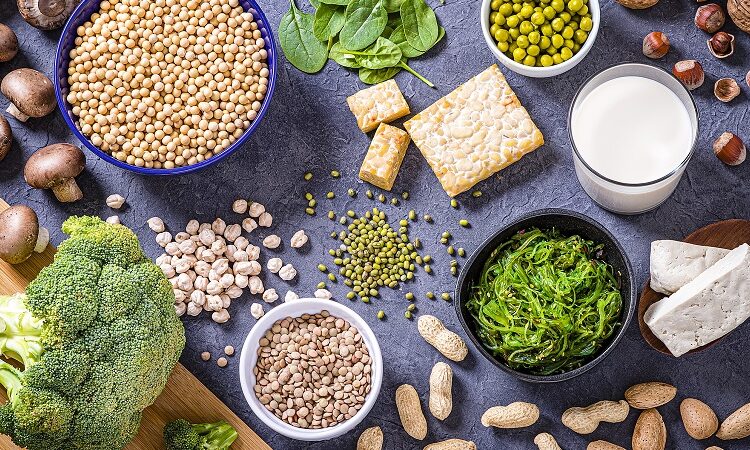The Future of Protein Production Chicago takes ‘temperature’ of alt protein investments, regulations

During the Future of Protein Product Chicago event, which takes place April 24-25, alternative-protein professionals will gather to discuss the state of the industry through panel discussions and networking events about funding, regulations, product development and opportunities for the industry in Illinois.
Illinois and Chicago makes an ideal location for food tech and alternative protein producers to set up shop, given the number of food companies located in the region, which is one reason The Future of Protein Production decided to locate this year’s US show in Chicago, Sbuttoni explained.
Ill. State Sen. Lakesia Collins (D-5th district) and Abin Kuriakose, chief strategy and innovation officer at World Business Chicago, will discuss “why companies should be setting up operations [in Chicago] and how to make favorable business cases for setting up in the region,” in a session titled, “Reimagining Economic Development with Alternative Proteins,” Sbuttoni said.
Investment sessions ‘to give the audience a state of the industry’
Given the capital- and time-intensive nature of creating alternative proteins, many alternative-protein companies are struggling to find enough funding to survive. Last fall, plant-based companies Hooray and Nowadays closed their doors, amid slumping plant-based sales, and UPSIDE Foods has paused its plan to open a plant in Illinois.
On the second day of the event, a panel of experts — including representatives from VegTech Invest, TurtleTree, Balletic Foods, PLANETARIANS, and Beyond Animal — will discuss the economic factors impacting the alternative protein segment, and the technical challenges of creating nutritious products and provide a similar sensorial experience to animal-based products.
“Our investment features in the agenda also aim to give the audience a state of the industry that’s what the big panel on investment is about, to help them take the temperature of what’s going on in the sector right now. And like you said, changes between what was happening in 2023 And what’s going to be happening in 2024. The broader economic climate we are starting to see IPOs again, so maybe we will start to see people raising money again or raising more money, and funds starting to flow a little bit.” Sbuttoni said.
Additionally, startup founders will also be sharing their stories and pitching attendees on their products in several pitch-style sessions on the first and second day of the event, with representatives from New Wave Biotech, The Protein Brewery, Ailurus Bio, Sobo Foods, Livestock Labs, and Hatchless presenting their innovations.
“We also have sessions that are focused on startups pitching what they are doing. So, we have five sessions … each with three startups joining. They might be pitching for investment. They might be pitching for potential partners [or] potential customers. And that is also the other side of the coin, so it is good to see what the expectations of startups are in this current climate as well.”
On the first day of the event, four representatives of early-stage plant-based companies, including unClassic founder Luiza Villela, Geem Founder Candice Choi, Rebellyous Foods CEO and Founder Christie Lagally, and Aqua Culture Foods Co-founder and CGO Brittany Chibe, will also share the obstacles that they face, in a panel discussion, titled “Startups in Action: Life in the Trenches.”
What markets should alt-protein ‘aim their product’ at for regulatory approval
Many alt-protein companies also seek regulatory approval from global food and health agencies to sell their products. Earlier this month, Vow became the third company — behind UPSIDE FOODS and GOOD Meats — to release a commercial cell-cultivated product, a lab-grown quail meat that is currently available in Singapore for a limited time.
On the topic of regulation, Brian Sylvester, partner at international law firm Perkins Coie, will moderate a panel discussion, titled “Safeguarding alt protein safety — tailored regulations for the future.” The panel will discuss the process for seeking regulatory approval in specific countries, and how new protein sources and technology can be adapted to current and future regulations.
“Regulation is always a big topic for our audience. So, it is good to see some really good speakers there that they can engage with and get a better understanding of how they can navigate the US market, primarily because we’re in Chicago, but then also further afield as well. So, the panel that Brian will be moderating is not just about regulations in Europe. It’s about global regulations. So, I know that the other panelists can weigh in on what’s happening in Europe, what’s happening in Singapore, perhaps even what’s happening in Australia, and where it makes sense for companies to aim their product.”
For more information about The Future of Protein Production Chicago, visit the event website here.



